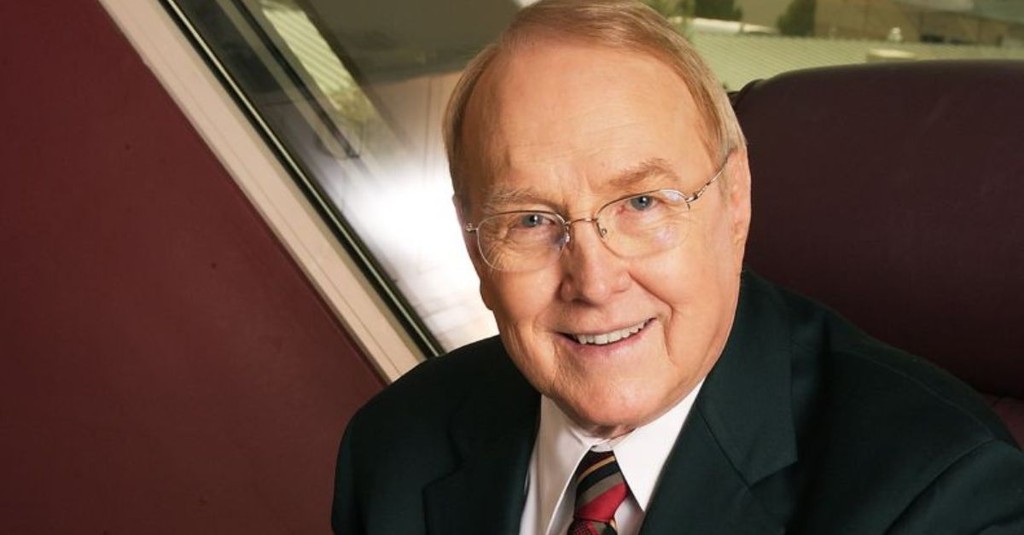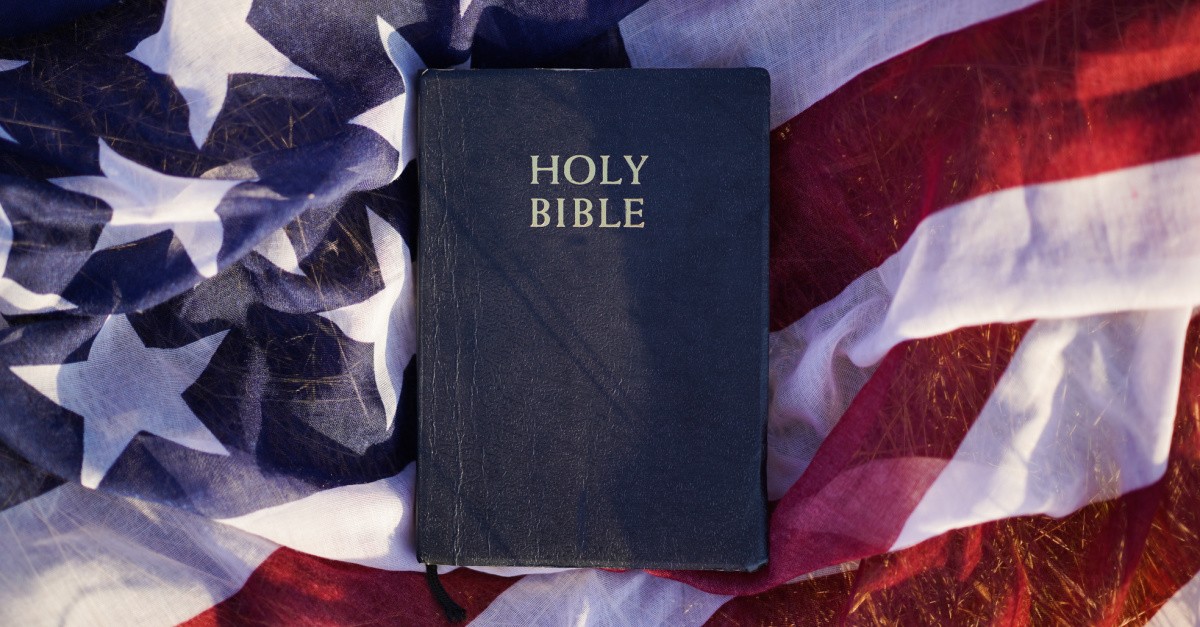
On August 21, 2025, Dr. James Dobson died at the age of 89 in Colorado Springs. Many know the man’s name or the ministry organization he founded, Focus on the Family. Through the 80s and beyond, Dobson became a major influence and leader in the evangelical church. His education and work focused on improving the family with biblical values. Dobson encouraged what was often considered “traditional family values” in a culture questioning or openly resistant to such principles. For this reason, Dobson faced controversy within the church and American society. His wide and important influence can’t be denied, however, beyond America to other countries through Focus on the Family media.
Here are 8 things to know about Dr. James Dobson.
Photo Credit: ©Getty Images/Harry Langdon/Contributor

1. James Dobson's Early Life and Background
James Dobson was born on April 21, 1936, in Shreveport, Louisiana. His father, James Dobson Sr., served as pastor of a Nazarene church, and his mother, Myrtle, organized the home, centering it on faith and prayer. Dobson grew up as an only child, and he learned lessons from his parents about faith, family, and discipline. His parents’ deep and consistent commitment to Christ built in young James an understanding of how to integrate spiritual truth with everyday life. He learned that religion wasn’t something only to be kept on Sunday mornings or in the church building.
The Dobson family moved to Texas from Louisiana when James Jr. was young, and he spent most of his childhood there. The father would speak in revival meetings, and James lived and observed the sacrifices and joys of ministry. Dobson didn’t resist or rebel against his parents’ faith but embraced it. Along with his personal devotion to Christ, James Dobson did well in academics, especially the science of human behavior.
Upon reaching higher education, Dobson felt he had a purpose. He attended Pasadena College, a Nazarene school, and ultimately earned advanced degrees in psychology. Since he had a strong Christian background and personal faith, he wanted to integrate the growing insights of modern psychology with the truths of Scripture. He believed the biblical principles of obedience, respect, and reliance on God had value in growing healthy children and families.
Photo credit: Unsplash-David-Beale

2. Dobson's Academic and Professional Training
After Pasadena College, Dobson earned his doctorate in child development at the University of Southern California, a secular university. His Ph.D. was in child development, combining the new disciplines of scientific training with his faith and biblical ideas. Dobson continued in his conviction that families needed practical, faith-based guidance that could also endure psychological scrutiny. Dobson wanted to understand human behavior and how faith could speak to having a healthy family.
Once he received his doctorate, Dobson started a professional career. First, he served as an associate clinical professor of pediatrics at the USC School of Medicine, his alma mater. There, he taught medical students about child development and family dynamics. At the same time, he worked as a child psychologist at the Children’s Hospital of Los Angeles. This role gave him experience with actual children and families who struggled with behavior and emotional needs.
Dobson continued to combine clinical learning with compassion and practical faith. He highlighted how parents should have discipline rooted in love, teaching parents to be firm with kids while nurturing and communicating to their hearts. As with most professionals and professors, he got involved in research and writing, developing skills for his later platforms, beyond the university or clinic. Through integrating academic studies, professional and practical experience, and his Christian faith through biblical principles, Dobson created a foundation for the ministry he would soon begin.
Photo credit: ©Getty Images/Bassitt ART

3. Dobson's Marriage and Family Life
Dobson’s practical experience went beyond his professional life. He had his own family, where he also learned to apply his faith and academic principles.
James married Shirley Deere in 1960, and this partnership supported and impacted his personal and professional life. Their marriage reflected the values Dobson later taught—commitment, faith, and the priority of family. Together they raised two kids, Danae and Ryan, and created a home where prayer, discipline, and love were the norm. Dobson’s personal family influenced his teaching and ministry, as he shared some of his own experience as a husband and father, relating to other families in their struggles.
While Dobson became the public voice of Focus on the Family, Shirley supported her husband but also developed her own leadership and ministry. She led the National Day of Prayer Task Force, where she encouraged believers around the world to unite in prayer for their country. James and Shirley learned to live a shared calling, both in family and public service for the Church.
Dobson drew from his real life of parenting and marriage, including the challenges of his own strong-willed children. His stories and experience reached and connected with families who had similar issues. Dobson’s marriage to Shirley and their dedication to their children testified to his message, that he truly believed what he taught.
Photo credit: ©Getty Images/evgenyatamanenko

4. Dobson's Best-Selling Parenting Books
Dobson first found influence through his bestselling books on parenting. These books reached millions of people around the world. His first major work, Dare to Discipline, was published in 1970 and explained his conviction that children thrived when parents combined love with firm boundaries. This inspired many Christian families who struggled with proper authority and love in a rapidly shifting culture coming out of the 60s, which included more issues like drugs and violence than before. Dare to Discipline’s success moved Dobson into a national spotlight as a psychologist and Christian leader.
Dr. Dobson wrote other influential books. In The Strong-Willed Child, he addressed the challenge of raising children who acted rebelliously or resisted authority. He offered practical tips and strategies based on faith and psychology. Later books like Bringing Up Boys and Bringing Up Girls brought up the different developmental needs of each sex, giving parents advice to nurture children accordingly. Each book combined research, clinical experience, and personal anecdotes from his own life, making his writing both relatable and based in data.
These books and more landed on bestseller lists and became common in Christian homes, churches, and Christian parenting classes. Dobson weaved psychological science with faith while relating to the struggles of parents and the culture, and these elements set his writing apart. He also regularly updated his books with new discoveries and parenting issues through the following decades.
Photo credit: Mahendra Kumar/Unsplash

5. Founding Focus on the Family
James Dobson founded Focus on the Family in 1977. Over time, this ministry became a massively influential platform. Dobson was already a respected child psychologist and author, a trusted voice for Christian parenting and family. Dobson thought families needed more than a book. They required a consistent, practical, and biblical resource to help them through modern struggles. Dobson launched the organization in Southern California with a small team and little funding. He first focused on radio broadcasts. His warm voice of experience and authority gained an audience across the United States.
From the popularity of radio broadcasts, Focus on the Family rapidly grew. In context of the early 80s, the Christian bookstore market also exploded, along with Christian radio stations and contemporary music. Dobson’s ministry was part of this wave with magazines, books, and counseling services. Later, his broadcasts reached over 150 countries. One popular and beloved program for kids is Adventures in Odyssey, a radio drama that started in 1987, teaching truths and morals to children through engaging storytelling.
Families who wanted a Christian answer to the changing society found trusted guidance through the resources of Focus on the Family. What started as a small radio program to help parents became a worldwide ministry that continues to influence families today.
Photo Credit: ©YouTube/Adventures in Odyssey

6. Dobson's Political and Cultural Influence
As the growing Christian “conservative” community grew, James Dobson became one of the more popular and consistent voices on political and cultural issues from the late 80s through the early 21st century. His early work focused on parenting and family life, and he realized that American cultural changes impacted the family. He started speaking out about abortion, traditional marriage, religious liberty, and the importance of the Christian faith in public life. Dobson believed Christians should communicate clearly when laws and policies contradicted biblical truth.
Focus on the Family (and later Family Talk) had a huge audience, and through these ministries and platforms, Dobson encouraged Christians to vote and engage with politics. He wrote letters to lawmakers and counseled political leaders, even presidents. His advice reached people like Ronald Reagan and both Bush presidents. Dobson never held political office, yet his teaching and activism shaped debates on education and policy around family.
His strong stances brought admiration and criticism. Supporters praised him for defending the sanctity of life and the traditional family, seeing him as a voice for biblical values. Some critics either disagreed with his positions or argued that he dangerously blurred the lines between faith and politics, advocating not only for positions but also for certain candidates, unduly alienating some people.
Despite the controversy, Dobson remained consistent, viewing his activism as an extension of supporting healthy families.
Photo credit: ©Getty Images/Anastasiia Stiahailo

7. Dobson Founds Family Talk
After more than 30 years leading Focus on the Family, Dobson stepped away from leadership of his organization. But he soon realized he wanted to continue using his skills and gifts as a speaker and teacher through broadcasting. While he no longer had this opportunity with his old organization, James Dobson and his son, Ryan, established the radio ministry Family Talk in 2010.
The ministry started again with a radio broadcast, this time called Dr. James Dobson’s Family Talk. The program continued to rely upon the same elements that grew Focus on the Family in the 70s—Dobson’s warmth, authority, and messaging. Listeners responded positively, regularly tuning in, and Family Talk expanded into hundreds of radio stations across the country. Like before, Dobson used the platform to provide biblical guidance on family challenges while addressing the current cultural and political issues.
With Ryan involved, Family Talk added a different aspect, combining generations in the discussion. The broadcast had father and son speaking together, mixing wisdom and viewpoints, one with decades of experience and one with a fresher perspective for younger families. This approach worked. It helped the ministry connect with longtime Dobson supporters and find a new audience with new listeners looking for practical Christian teaching on the family. Family Talk developed digital resources and podcasts to reach beyond traditional radio.
Photo Credit:©GettyImages/NanoStockk

8. Dobson's Legacy of Christian Family Ministry
Through his books, broadcasts, and ministries, James Dobson shaped the broader Christian culture with ways to approach marriage, child discipline, family, and faith. His emphasis on integrating psychology with the Bible helped believers see how academia and faith could coincide and didn’t have to be separate. Through his writing and ministry, he reminded Christians how our family and day-to-day life didn’t have to be isolated from faith. In addition, he encouraged believers to see the importance of their voice in political matters, as well.
Dobson gave people confidence and the language to address real-world struggles from the home to the nation, from dealing with rebellious children, marital conflict, or public policy influencing the family.
His activism clearly generated debate. No leader or speaker is perfect in their positions or teachings, and other more “progressive” activists can be just as passionate in their criticism. Yet Dobson strived for what he believed to be positive and healthy change. He had massive influence among Christians for decades. On a personal level, we can respect that he didn’t have any moral failings in marriage or ministry money, which is too common among many Christian public figures.
Despite modern vocal opposition, Dobson’s influence will continue to be felt through his writings, broadcasts, and ministries like Focus on the Family and Family Talk, helping families to be strengthened by faith and practical advice.
Peace.
Photo Credit: ©iStock/Getty Images Plus/BrianAJackson

Originally published Wednesday, 27 August 2025.
